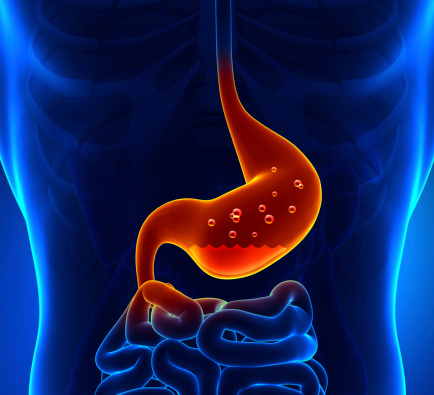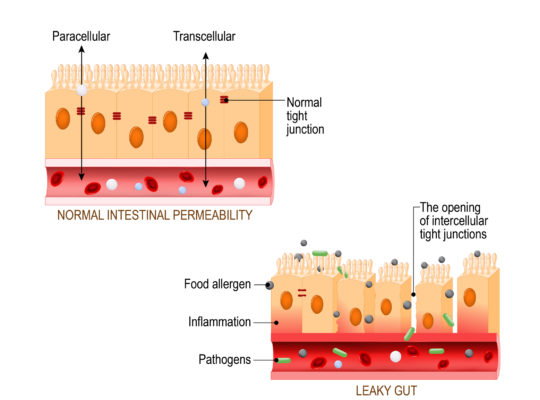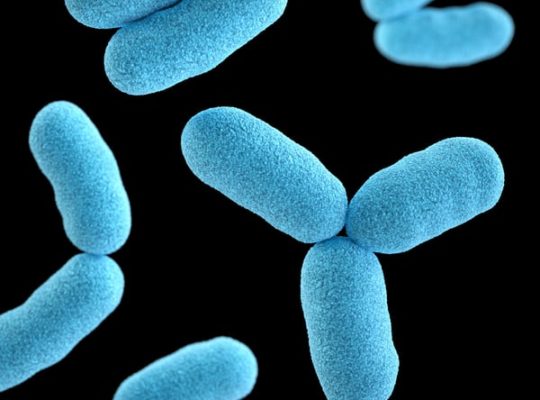We need strong stomach acid, hydrochloric acid (HCl), for optimal digestion. Stomach acid helps with protein breakdown, aids in mineral (e.g., iron, magnesium, chromium, selenium) and Vitamin B12 absorption, and serves as a barrier protecting against various microorganisms that might otherwise colonize the gastrointestinal tract. Strong stomach acid also signals the release of pancreatic and gallbladder digestive fluids and ensures that digestive enzymes break down our food. When stomach acid gets less acidic, these vital functions don’t take place.
As we age, our stomach acidity decreases; approximately 50% of people aged 60 or older have low stomach acid (hypochlorhydria). By age 85, this increases to 80%. Other than aging, hypochlorhydria can be caused by chronic stress, long-term anti-acid or acid reflux medication use, bacterial infections caused by Helicobacter pylori, zinc deficiency (zinc is necessary to produce stomach acid), and microbial dysbiosis (imbalance of gut bacteria).
Many people have suboptimal levels of acid and aren’t aware that their health symptoms are tied to hypochlorhydria. For instance, someone with a sluggish thyroid might suffer from low selenium, zinc, sodium, and/or magnesium levels as a result of low stomach acid. These minerals are necessary for proper thyroid function. In addition to hypothyroidism, insufficient mineral absorption can lead to several disease states, including anemia, Type 2 diabetes, autoimmune diseases, arthritis, and depression. Vitamin B12 deficiency causes fatigue, weakness, impaired detoxification, neuropathy, and other nervous system issues. Your body needs adequate protein to make enzymes and hormones, and it’s an essential building block for bone and muscle health as well.
Some common symptoms of hypochlorhydria are:
- Frequent daily belching
- Nausea after taking supplements (except zinc, which may promote nausea on its own)
- Undigested food in stools
- Bloating or fullness during or right after meals
- Irritable bowel syndrome (IBS) or frequent gut infection or microbial imbalance (e.g., candida, parasite)
- Insufficient levels of Vitamin B12 and/or iron despite eating meat regularly
- Multiple mineral deficiencies despite a whole foods diet
- Skin conditions (e.g., rosacea)
- Osteoporosis or osteopenia
- Multiple food allergies/sensitivities
If you have a few of these symptoms, there are things you can do to increase stomach acidity on your own:
- Chew your food slowly and thoroughly (up to 20 times before swallowing)
- Eat when you are not anxious, as stress interferes with acid production
- Add fermented foods to your diet, as they can improve digestion and reduce inflammation from low stomach acid
- Eat foods rich in zinc
Resolving hypochlorhydria can result in great digestion improvement and increased energy levels. If you are still struggling with low stomach acid after trying some of these measures, you can supplement with “HCl betaine with pepsin.” You should do this only under the guidance of a physician or functional medicine practitioner.







